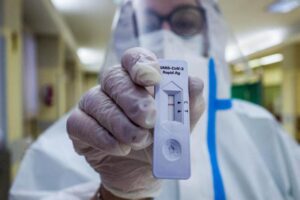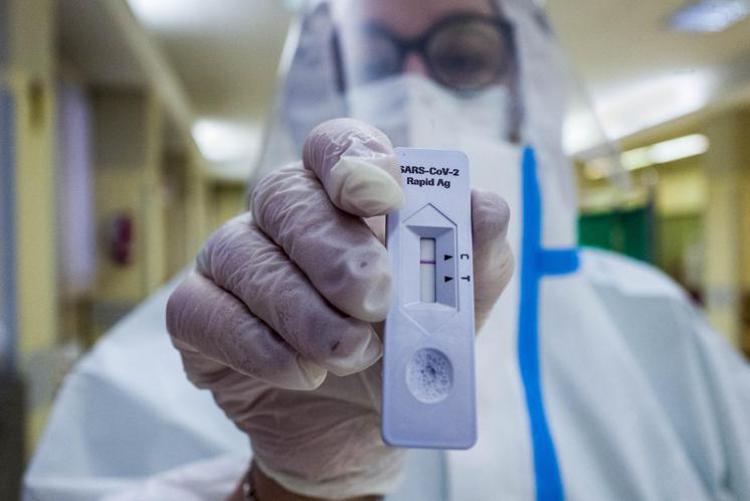“Omicron and mild symptoms? That’s a myth, it’s very dangerous”

TORONTO – The threat posed by Omicron is frightening. The new variant has created a climate of great concern in the international scientific community, although at the moment there is no unequivocal assessment of this new threat. On the one hand, in fact, we have numerous virologists who have highlighted how the first data coming from South Africa and Europe have highlighted a greater transmissibility of the coronavirus and, at the same time, the presence of generally milder symptoms for the infected compared to the Delta strain and the other variants that have characterized this pandemic.
On the other hand, we find other experts who reiterate that the new variant in general is much more dangerous than those encountered so far. Among these there is also Peter Jüni, head of the Technical Scientific Committee that supports the provincial government of Ontario since the beginning of the pandemic for the creation of damage limitation and contagion containment protocols. According to Jüni, that of milder symptoms represents “a myth to be debunked. We are facing, instead, a historical fact, which has no precedent. This week Omicron will become the predominant variant in the province. People can’t even imagine the gravity of the matter: a really difficult challenge awaits us.”
Apocalyptic words, which do not portend anything good. According to the Science Table, the Covid infection replication rate so far has been 1.27: that is, for every 100 infected, 127 new positives will be generated. Omicron, on the other hand, is much more easily transmissible: every 100 positives, 332 secondary cases will be produced. “This variant – adds Jüni – is highly infectious: it will reach every single person. From a statistical point of view, Omicron will reach every single person in Ontario: always from a statistical point of view, there will be very few lucky ones”.
In short, there is really to be worried about. However, Jüni’s position, at least until now, is not fully shared by the international scientific community: there is a substantial consensus on greater transmissibility, while on gravity there are more varied positions. In the United States, Anthony Fauci last week pointed out that preliminary data show that the Omicron variant triggers milder symptoms than the previous ones. A cautious optimism that has been reiterated by a long list of Italian virologists.
Today, however, even in Italy the tones have changed slightly and the optimism of the last few days has been superimposed on a veiled pessimism, also because of the news that has arrived from England where the first death caused by Omicron was recorded.
Fabrizio Pregliasco, professor at the University of Milan, brakes on the easy enthusiasm of last week. “Omicron could be a rip-off – summarizes Lapidary Pregliasco – we could have a tail that extends further. There has already been a death and it is clear that increasing the infections also comes some serious cases. In South Africa the case history is very different, the population is much younger, so we have good trouble.”
The same concept reiterated by Silvio Garattini of Mario Blacks: “The data of South Africa are in a completely different context than in Europe, they must be taken with interest but they are for South Africa. We must not be soothsayers, we wait: as long as there are few cases it is logical that there are no serious diseases and mortality, as they increase it is clear that we can have serious cases but we wait”.
The virologist Roberto Burioni, of the Vita-Salute San Raffaele University of Milan, is cautious: “First data on Omicron. Bad news: Seven patients vaccinated with a third dose have been infected. Good news: of these seven only one had a fever, and only for three days. Age between 25 and 39 years. We wait to draw conclusions.”
On Thursday, Burioni had written another tweet where he reported the positive data on the third dose: “Without going into detail – he said – the data on the effectiveness of the third dose against the Delta variant are exciting. If confirmed, very complex scenarios open up, which will have to take into account the role of any asymptomatic reinfections”.



